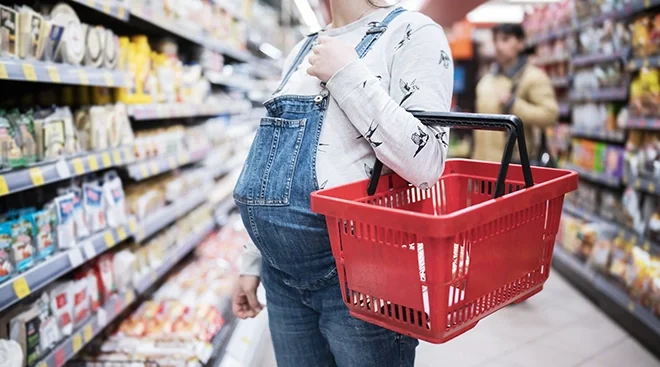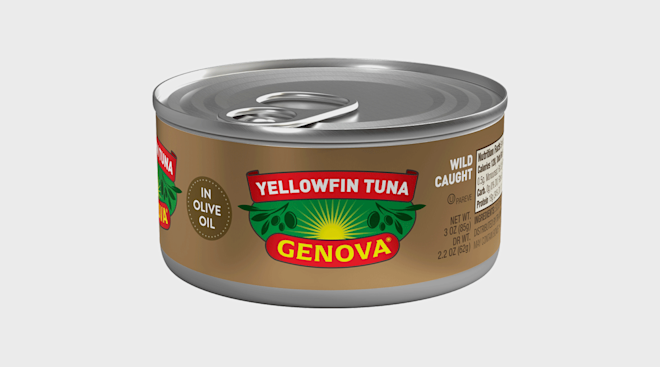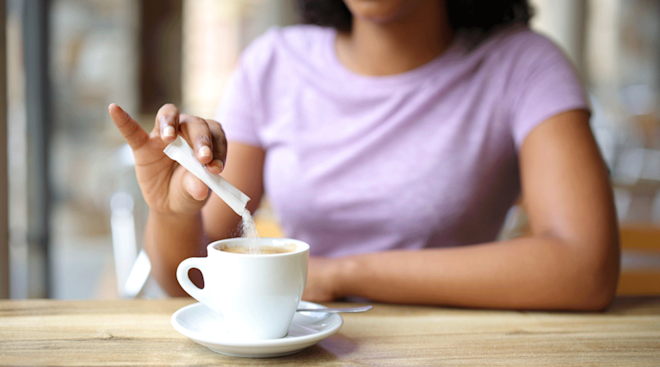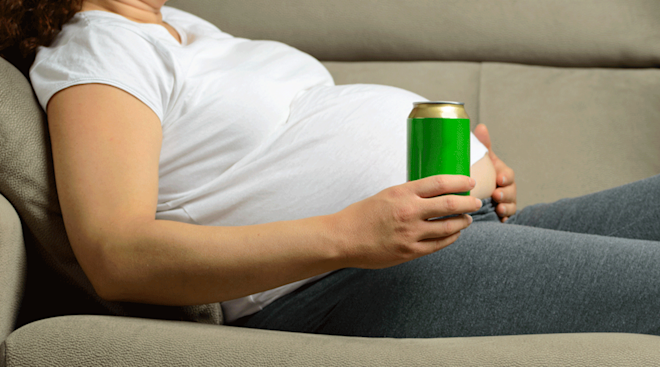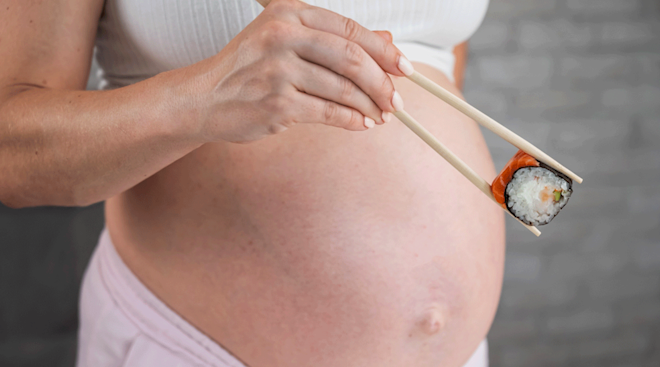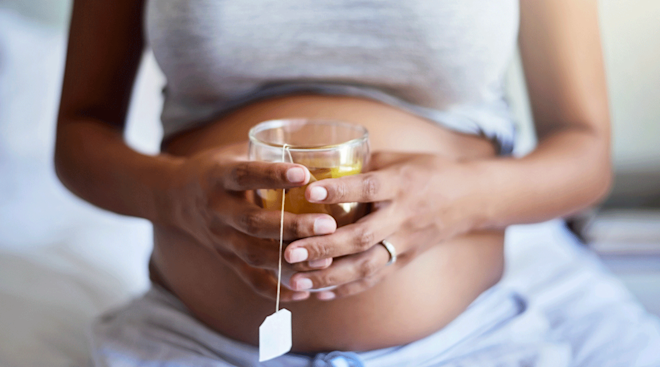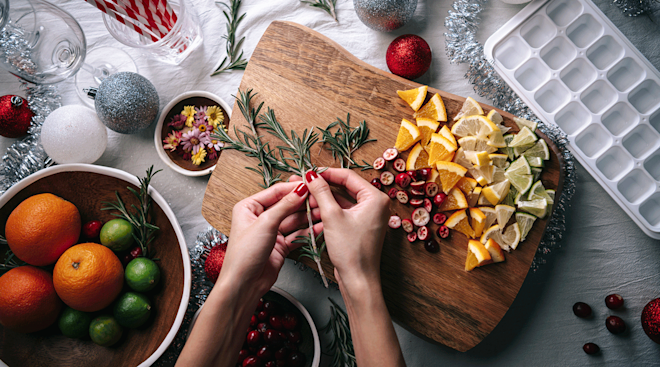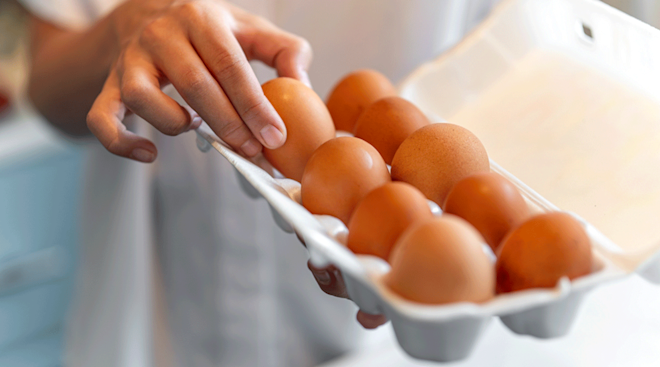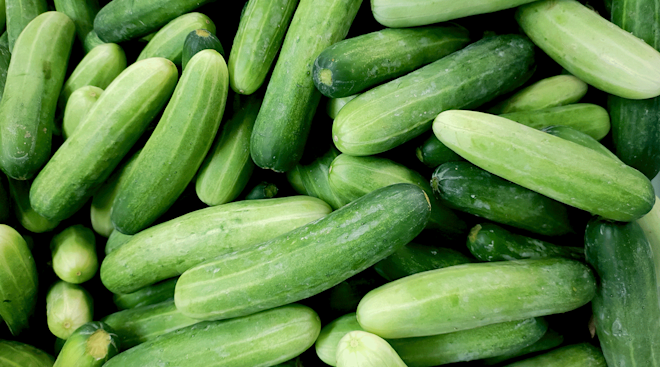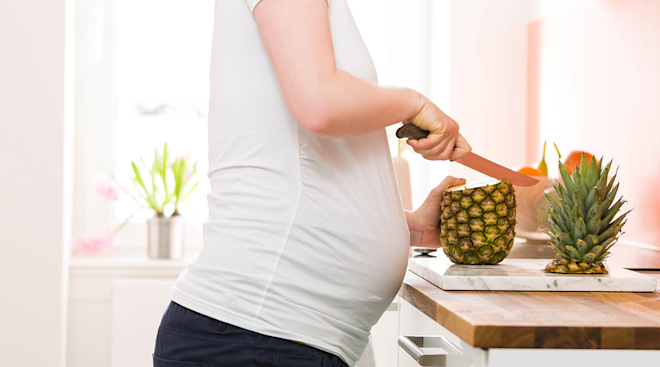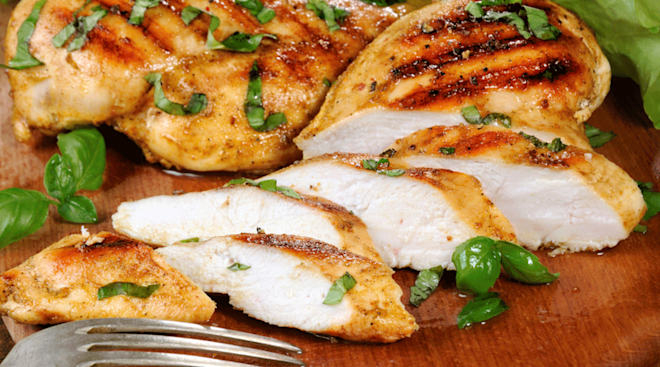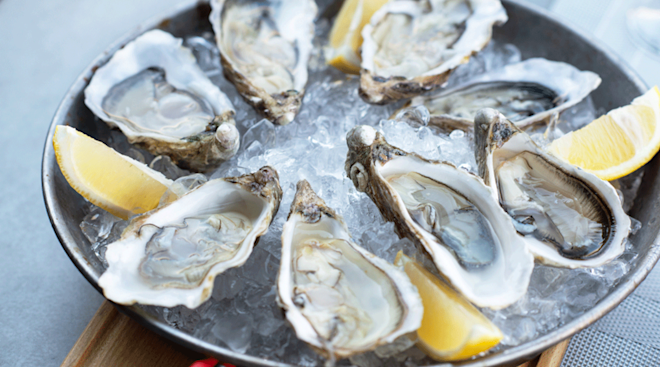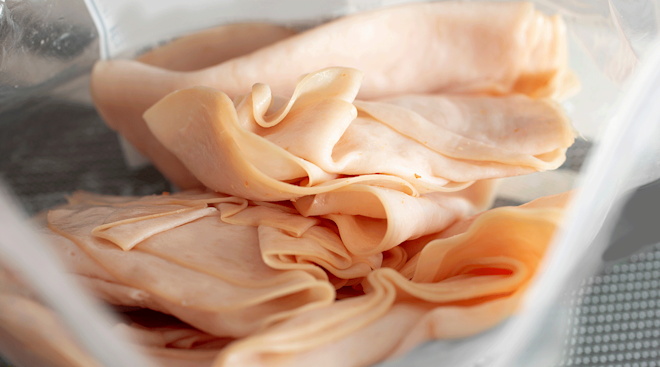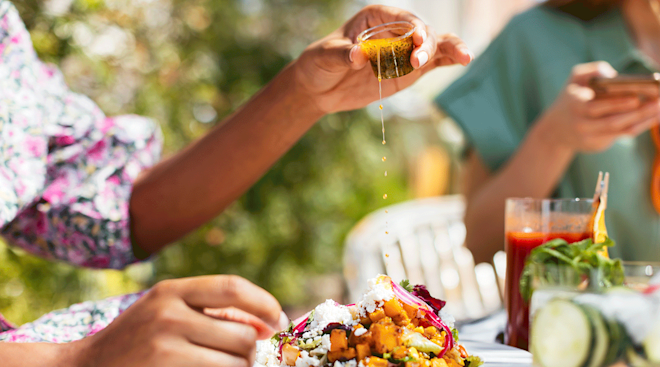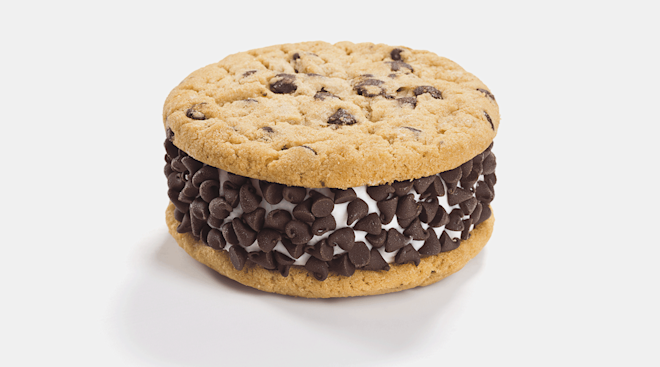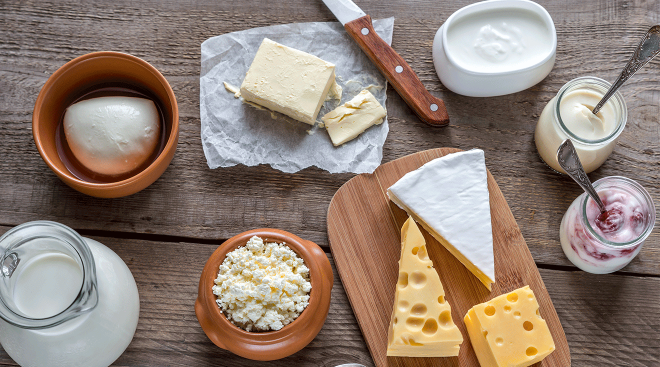Top Foods to Avoid During Pregnancy
As a parent, your top priority is the safety of your child—and that starts during pregnancy. One important way to keep you and baby safe is to steer clear of certain foods that are known to be harmful or potentially risky to consume while pregnant. Wondering what not to eat during pregnancy? Some may be common knowledge (think: alcohol), while others might surprise you. Here, we asked experts for a comprehensive list of which foods to avoid during pregnancy (and which to at least limit when you’re expecting).
The list of foods to avoid during pregnancy can get pretty overwhelming, but most of it has to do proper food safety practices, Jennifer Jolorte Doro, a New York City-based clinical nutritionist with Oula Health, says. Unwashed and undercooked food can contain bacteria and parasites that cause food poisoning and make you sick. While most people generally recover from symptoms like diarrhea and vomiting, these can be dangerous for pregnant people, as they have weaker…immune systems, Doro says. Bacteria and parasites that can be especially concerning in pregnancy include:
-
Escherichia coli: Also known as E. coli, this bacteria lives in the intestines of healthy people and animals. While some types of E. coli are harmless, others can cause sickness. Exposure to these typically comes from raw vegetables, meat and unpasteurized milk, but E. Coli can also appear in undercooked or poorly processed meat, as well as salad greens, Doro says.
-
Listeria: According to the American College of Obstetricians and Gynecologists (ACOG), listeria is a bacteria found in soil, water and certain animals, such as cattle and poultry. Listeria can cause listeriosis, a serious type of food poisoning that can be especially scary during pregnancy, as it increases the risk of miscarriage, stillbirth and preterm labor.
-
Toxoplasma gondii: Toxoplasmosis is an infection caused by the parasite Toxoplasma gondii. In healthy people, the immune system is often able to fight the parasite and prevent infection, the CDC says. However, people with weakened immune systems—such as pregnant women—could suffer serious health consequences. Plus, toxoplasmosis can damage baby’s vision and cognitive development.
-
Salmonella: According to the Food and Drug Adminstration (FDA), this bacteria can be found in raw eggs, raw dough and other food products. While most people with healthy immune systems can recover without medication, just like with the rest, people with weakened immune systems are more likely to suffer health complications.
The good news? Preventing foodborne illness can be easy. According to the FDA, make sure you wash your hands and surfaces often, separate food to avoid cross contamination, cook food to the proper temperature and refrigerate food properly—and cut out certain foods from your pregnancy diet.
Now that you know why it’s important to avoid certain foods during pregnancy, let’s dig into what those foods are.
Raw meat and fish
Raw, smoked or undercooked meat and fish (like sushi and sashimi) are at the top of the list of foods to avoid during pregnancy. They carry a risk of norovirus, salmonella, listeria, toxoplasma and E. coli, says Kameelah Phillips, MD, IBCLC, an ob-gyn and Philips Sonicare expert partner. Certain bacteria are killed only by heat, so raw and undercooked meat and fish pose an increased likelihood for food poisoning. You’ll also want to steer clear of raw shellfish, including oysters, clams and mussels, as these could have algae-related infections, the American Pregnancy Association (APA) says.
To avoid catching foodborne illnesses, the APA recommends cooking whole cuts of meat to 145 degrees Fahrenheit; ground meats (like hamburgers) to 160 degrees Fahrenheit and chicken breasts to 165 degrees Fahrenheit. While these are the recommendations, use your best judgment to ensure the meat you’re consuming is fully cooked through.
Seafood that’s high in mercury
The FDA lists king mackerel, marlin, orange roughy, shark, swordfish, tilefish and bigeye tuna as high-mercury fish to avoid during pregnancy. Mercury accumulates over time, and because certain large fish live longer, they store more mercury in their flesh, explains Sarah Krieger, MPH, RDN, a registered dietician and nutritionist. Mercury accumulates in people too, and, as studies have found, it can disrupt fetal brain, hearing and vision development. Instead, opt for low-mercury seafood (more on this below).
Unwashed vegetables
Also on the list of foods to avoid during pregnancy? Unwashed vegetables, such as lettuce, salads and raw sprouts. According to the FDA, these pose a higher risk of food illness for pregnant people, as they can harbor bacteria such as salmonella, listeria and E. coli. “Any raw vegetable that swims in a pool of water in its package is at high risk for bacteria,” says Krieger. While washed, packaged salad is okay, you’ll want to eat it within a day or two of opening it. If you want to be super safe, cook your veggies before consuming them.
Raw dough and batter
Sensing a pattern? Pretty much anything raw is off the table during pregnancy. You might be craving raw cookie dough, but, for baby’s sake, resist licking the spoon when you’re baking. Dough and batter contain raw eggs, which pose a risk for salmonella and food-borne illness. (But take heart: Some commercial cookie dough lists pasteurized eggs in the ingredients list, so those should be okay from a food safety standpoint.)
Deli meat and prepared deli foods
Deli foods are high on the list of pregnancy food to avoid. Cold cuts (including ham, turkey, bologna and more), cured meats (like salami, pepperoni, prosciutto and chorizo) and hot dogs are actually dangerous for you and baby, Phillips says, as they can be contaminated with listeria. You can have them if you heat them up to at least 145 degrees (165 if it’s leftovers), as this will kill the bacteria.
Still, it’s a good idea to avoid the deli counter altogether during pregnancy. The problem with prepared deli foods, Krieger says, is that you don’t know how long they’ve been sitting in the refrigerated case, what the temperature is in there (and if it stays at a consistent 40 degrees or less) and whether all the ingredients in a salad or dish have been pasteurized. Instead, make your own potato or pasta salad and other deli favorites so you know exactly what you’re eating.
Unpasteurized cheese and juices
Unpasteurized essentially means raw, so you can add any unpasteurized items to your list of pregnancy foods to avoid, including select cheese and fruit juices. The FDA notes that soft cheeses—like Brie, Camembert, blue cheese and queso fresco—made from unpasteurized milk contain a higher risk of illness. Always check the label when buying cheese: Many soft cheeses sold in US grocery stores are in fact pasteurized, but it’s important to confirm. And while other types of cheese, like feta or mozzarella, are typically pasteurized, not all are. If it’s fresh or homemade, like some small-batch artisan cheese, ask the person that prepared it. When in doubt, skip it for now, Krieger recommends, as unpasteurized cheese can carry listeria. Instead, go for a safer slice, like cheddar or Swiss.
Just like cheese, unpasteurized juice or cider are also on the list of what not to eat during pregnancy. If you’re at the farmer’s market and aren’t sure if the juice or cider is pasteurized, it’s better to ask or pass. Plus, be sure to check labels while grocery shopping, as the FDA requires warning labels on any fruit or vegetable juice that hasn’t been pasteurized. However, the agency doesn’t require labels for fresh-squeezed juices or cider sold by the glass (like at health-food stores, juice bars, farm stands and apple orchards). Krieger’s rule of thumb: If a fruit or veggie is juiced on the spot and consumed within an hour, it’s safe. But freshly squeezed juices that sit around for longer than that are too risky for pregnant women to consume.
Alcohol
According to ACOG, the CDC and several studies, there is no safe amount of alcohol to consume during pregnancy. Even moderate drinking can cause baby to have lifelong problems with coordination, behavior, learning and more. Plus, consistent alcohol consumption during pregnancy can lead to Fetal Alcohol Syndrome, serious birth defects, issues with baby’s growth and neurodevelopmental disorders.
You might be wondering if common allergenic foods—like dairy and peanuts—also count as pregnancy food to avoid. According to Doro, “Unless you have a diagnosed food allergy, like celiac disease or oral allergy symptom, common allergen food should not be avoided.” In fact, your pregnancy diet exposes baby to a variety of flavors and nutrients while in utero, and, as Doro adds, “Early exposure is important!”
While there are some foods to avoid entirely during pregnancy, others you’ll want to consume in moderation to ensure baby’s healthy development. Numerous studies have found that consuming a pregnancy diet full of nutritious and balanced food has led to better cognitive development in baby and lower risk of pregnancy complications, including preeclampsia, preterm delivery and gestational diabetes. To reap these benefits, these are the foods to limit during pregnancy:
Seafood that’s low in mercury
The most recent USDA guidelines recommend pregnant people eat up to 12 ounces of low-mercury seafood per week. Unlike seafood that’s high in mercury, these fish—such as tilapia, cod, salmon, trout, catfish and shellfish—are actually good for you and baby. They’re excellent sources of lean protein, B-12 and zinc. Plus, salmon, trout and herring are rich in omega-3 fatty acids, including DHA (which may boost baby’s brain development), Phillips says. But they do have some mercury in them, so keep to 12 ounces or less a week. Canned light tuna is also safe to consume, Phillips notes, but limit your intake to a total of 140 grams per week. Most importantly, make sure all the seafood you eat is fresh and cooked thoroughly.
Caffeine
The good news: You don’t have to give up your daily cup of joe! But you shouldn’t toss back coffee after coffee to get you through the pregnancy fatigue. Moms-to-be can safely consume up to 200 milligrams of caffeine per day, according to ACOG. This is the equivalent of about one cup of filtered coffee. “Consuming large amounts of caffeine during pregnancy may increase the likelihood of low birthweight, and, in severe cases, miscarriage,” Phillips says. Plus, according to the APA, caffeine is a stimulant that increases blood pressure and heart rates, which may make it risky for pregnant women with existing high blood pressure or anxiety. “Speak with your doctor about the optimum levels of caffeine consumption for you before consuming caffeinated drinks or foods, including herbal teas,” Phillips says. “If you want to drink coffee, I recommend reaching for a cup of decaf to ensure you aren’t exceeding the daily amount of 200mg but can still satisfy that craving!”
Herbal tea
As mentioned above, some herbal teas may have caffeine—but you should avoid some caffeine-free herbal teas too. “There are not many studies on herbs during pregnancy,” says Krieger. Go ahead and stick to decaf black, white or green tea or with familiar herbs, such as lemon verbena, mint or chamomile. But if it’s something you’re unsure of, don’t have it. The general rule of thumb is to avoid anything in excess during pregnancy. In other words, if you have tea, mix up the variety you’re drinking so nothing potentially harmful can accumulate in large quantities in your body.
Junk food
You already know that a balanced, nutritious diet is crucial for pregnancy and healthy fetal development, so it comes as no surprise that junk food—foods that are high in calories, sugar and fat, with little to no nutritional value—should also be limited during pregnancy. Previous studies have shown that high junk food consumption has led to higher birth weights, increased risk of childhood obesity and disrupted sensory development. “These foods can carry significant risk to your pregnancy,” Phillips says, adding, “I have definitely seen these foods…negatively impact pregnancies.” Of course, having a sweet or fried treat every now and then is completely okay—just make sure that your pregnancy diet consists mainly of balanced and nutrient-rich foods.
It can be hard to give up certain things during pregnancy, but trust that it’s all worth it. “There will be time after delivery to enjoy processed or raw foods, but during pregnancy challenge yourself to explore healthy ways to nourish yourself and your pregnancy,” Phillips says.
About the Experts:
Sarah Krieger, MPH, RDN, is a registered and licensed dietician and nutritionist based in Florida. She received her bachelor of science in dietetics from Central Michigan University and master of public health degree from the University of South Florida. She also served as a spokesperson for the Academy of Nutrition and Dietetics from 2007 to 2016.
Jennifer Jolorte Dolo is a New York City-based clinical nutritionist with Oula. She also serves as a postpartum chef with A Lite Bite and is the culinary director of the health platform Nouri Mama. She has a master’s degree in clinical nutrition from the Maryland University of Integrative Health, and is a certified breastfeeding counselor, birth doula and prenatal yoga instructor.
Kameelah Phillips, MD, is a board-certified ob-gyn and lactation consultant, as well as a Philips Sonicare expert partner. Her private practice, Calla Women’s Health, is based in New York City. Phillips received her undergraduate degree from Stanford University and her medical degree from the University of Southern California.
Please note: The Bump and the materials and information it contains are not intended to, and do not constitute, medical or other health advice or diagnosis and should not be used as such. You should always consult with a qualified physician or health professional about your specific circumstances.
Plus, more from The Bump:
Navigate forward to interact with the calendar and select a date. Press the question mark key to get the keyboard shortcuts for changing dates.
































